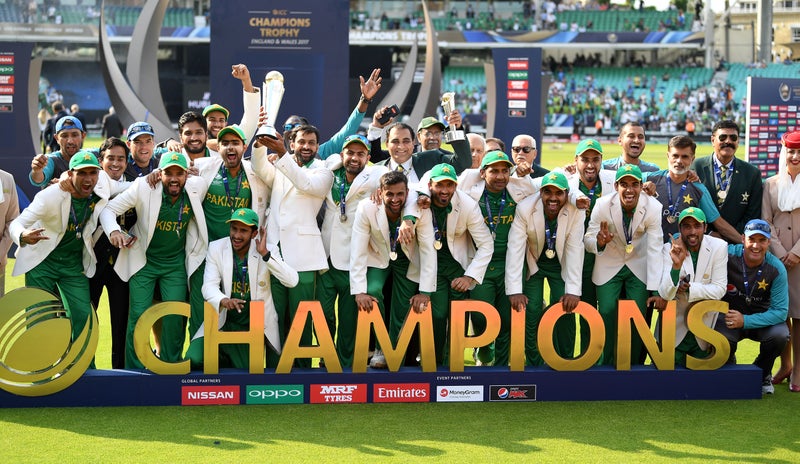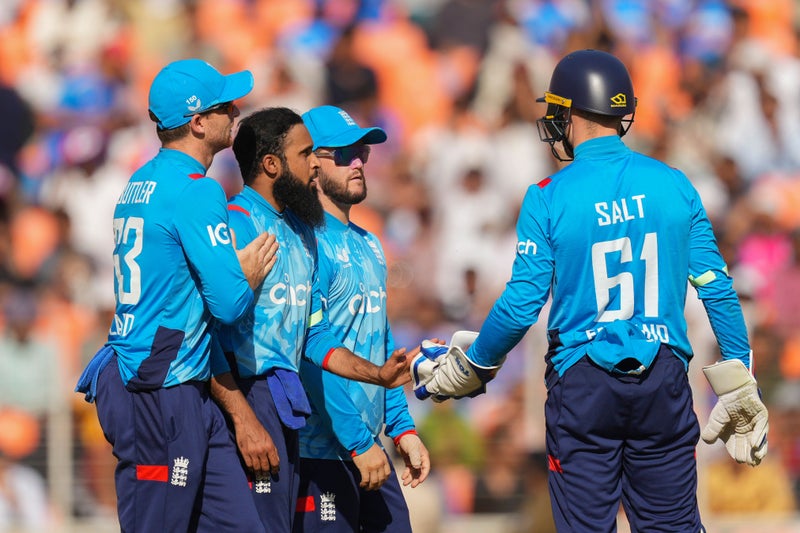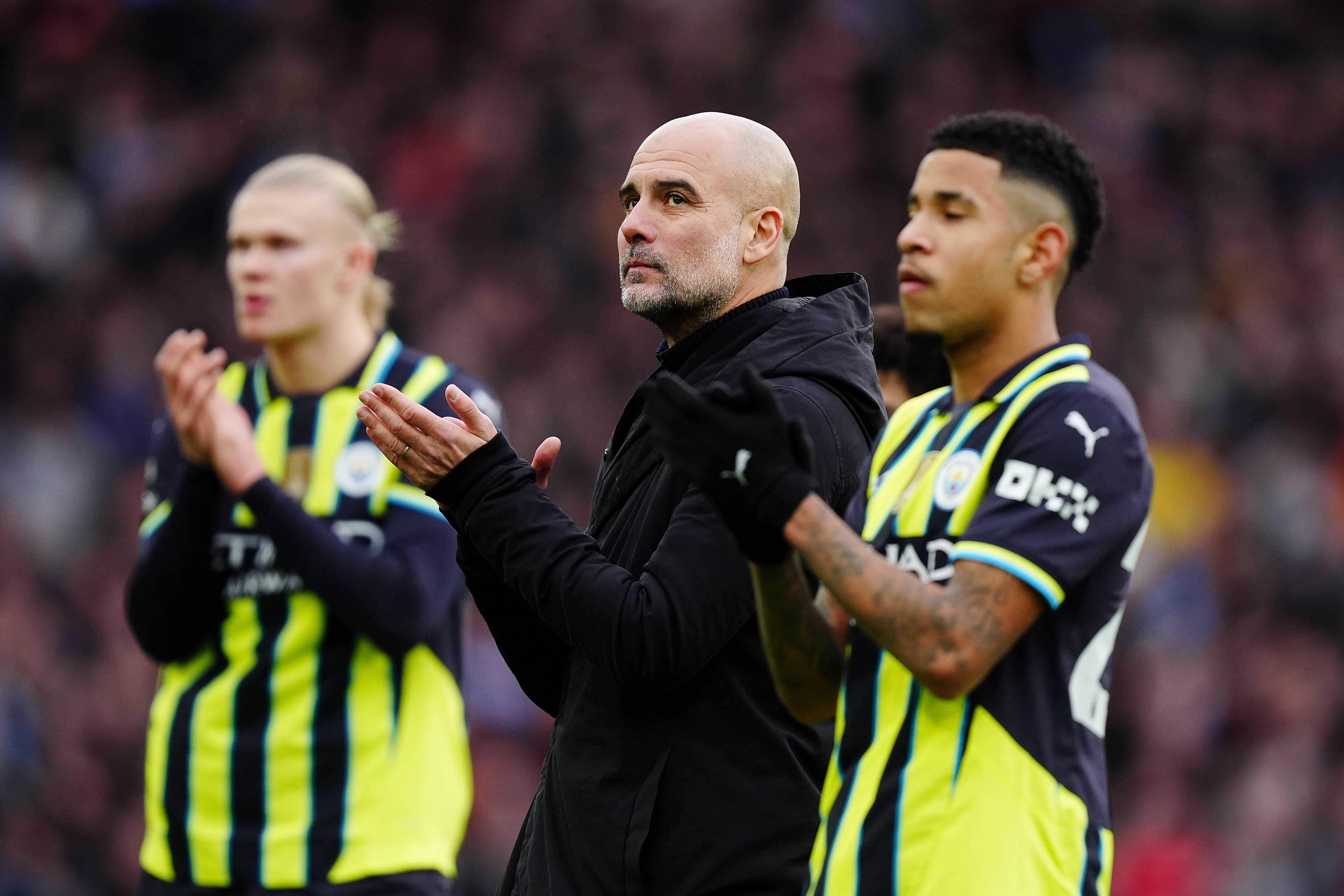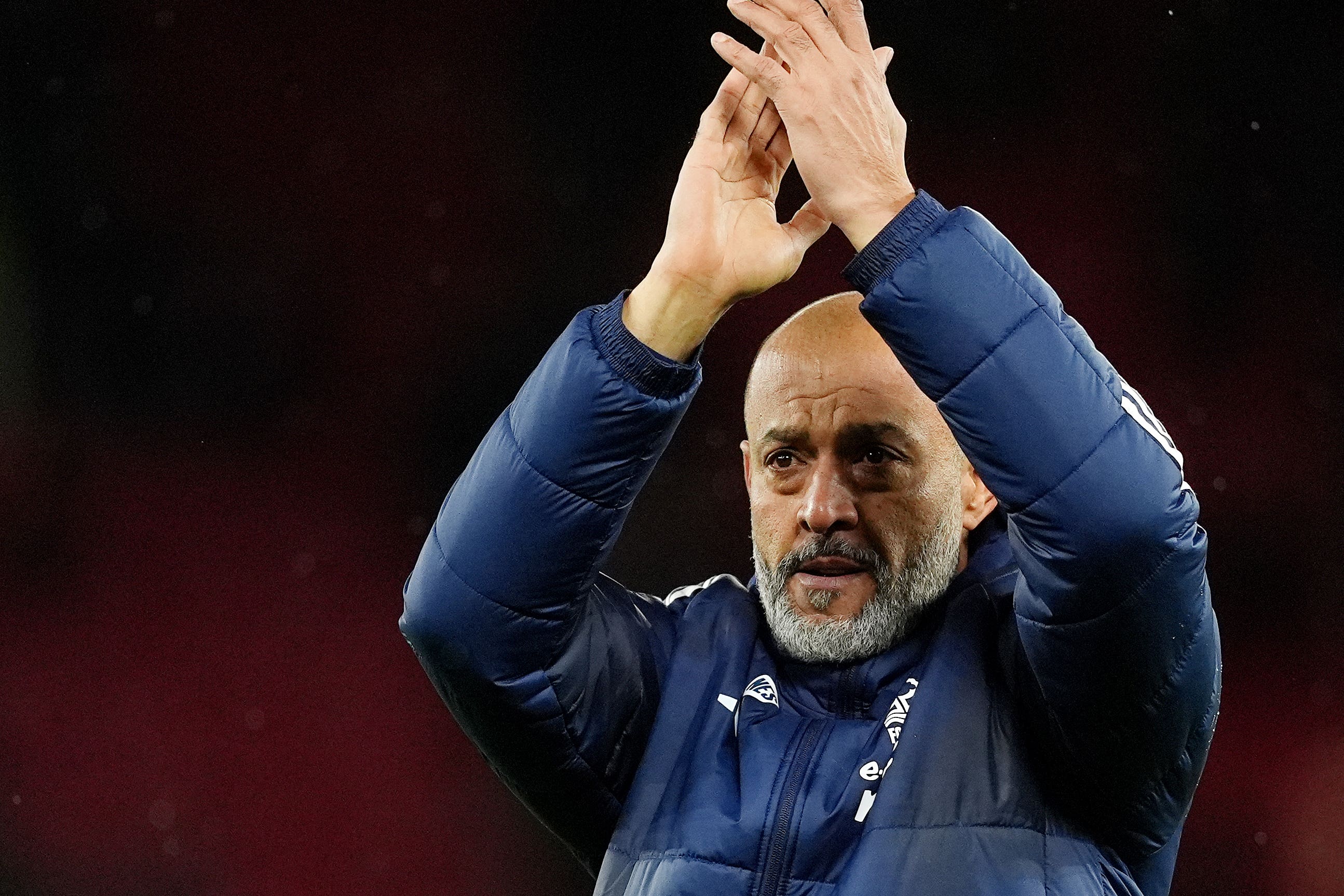Favourites India come into tournament on sour note after refusal to play in Pakistan gives superpower tactical edge. As the ICC Champions Trophy resurfaces in Pakistan this week, nearly eight years since the last one, folks will be forgiven for a few double takes, for feeling a bit like Ian Wright reuniting with his old teacher in that lovely viral clip, jaw dropped to the floor and gasping: “You’re alive! Someone said you were dead!”.
![[Ali Martin]](https://i.guim.co.uk/img/uploads/2022/08/22/Ali_martin3,_L.png?width=75&dpr=1&s=none&crop=none)
Although did anyone seriously think the Champions Trophy was toast? They say cockroaches and microbes would survive a nuclear apocalypse but there is every chance international cricket’s 50‑over tournoi would also spring up in the wasteland, glowing with radiation but still ready to stick its presumably mutated winners in those Miami Vice-style white blazers and deliver that sweet, sweet broadcast money.
![[Members of the Special Security Unit stand guard outside the National Bank Stadium, which hosts the opening match of the tournament.]](https://i.guim.co.uk/img/media/453c5da53cbad1216163514e606af59cd6156171/0_620_4997_2998/master/4997.jpg?width=445&dpr=1&s=none&crop=none)
That might be a bit harsh. The Champions Trophy has always been a fun, punchy affair, its eight editions to date throwing up seven different winners since it first appeared in 1998. Even South Africa have won one, although England, somehow, have not. And while the full‑scale 50-over World Cup has become a seven-week test of endurance, little brother does not muck about. Starting in Karachi on Wednesday, the hosts taking on New Zealand, this one features 15 matches in just 19 days. Ideal.
![[Pakistan fans support their team at the 2017 Champions Trophy final against India at the Oval]](https://i.guim.co.uk/img/media/b349ff2d4808bb2304cd9ce32ff31fd5ce90866f/146_208_3628_2177/master/3628.jpg?width=445&dpr=1&s=none&crop=none)
It is just that in the T20 era – ie, the two World Cups era – the Champions Trophy has been hard to take as seriously given its diminished status and repeat resurrections. Neither edition from 2013 and 2017 in England were the original plan, rather fallback positions when thoughts of creating a World Test Championship with semi-finals were aborted. With a WTC now in the calendar, this latest return is solely about servicing a £3bn television deal that apparently must have at least one men’s event a year.
![[Fans in Mumbai surround the team bus during the victory parade after India had won the 2024 T20 World Cup. ]](https://i.guim.co.uk/img/media/5dda246f0215cc2a764bd47fcec427066ce86341/0_398_6000_3600/master/6000.jpg?width=445&dpr=1&s=none&crop=none)
But then the Champions Trophy has always been about the money, its very genesis being as a device to bridge the revenue gap between 50‑over World Cups. Australia, New Zealand and West Indies have never hosted, you will note, their time zones not juicy enough for TV. It was also supposed to take the sport to emerging territories, the debut in pre-Test status Bangladesh and then Kenya in 2000, only for the full members to take over. Associate nations have not even appeared at one since 2004.
This latest Champions Trophy, which is televised on Sky Sports, features the top eight from the 2023 World Cup group stage, qualifying criteria that became public knowledge only halfway through it. The International Cricket Council and the broadcaster Star even pondered converting it into a T20 at one stage, only to be swayed by concerns this would reopen a four‑year gap between 50-over World Cups and possibly hasten the one-day format’s demise.
And yet for all of its baseline confection – the tournament is the ICC in microcosm, one could argue – this Champions Trophy is also a hugely significant moment for the sport. Pakistan is hosting its first global men’s event for 28 years, the latest milestone on the long road out of security-dictated isolation that was first paved by the creation of the Pakistan Super League and the slow return of bilateral tours to the country.
Pakistan are also defending champions, even if there are just two survivors – Babar Azam and Fakhar Zaman – from that giddy 180-run walloping of India at the Oval in 2017. According to the board president, Mohsin Naqvi, the country is just desperate to show off its warm hospitality and has poured an estimated £16m into refurbishing the stadiums in Lahore, Karachi and Rawalpindi. ICC deadlines for the upgrades were beaten like an Indiana Jones hat-swipe.
The only catch? As widely expected when Pakistan were awarded the tournament in late 2021, India are not setting foot in the country after citing their own security concerns. This means the superclasico against Pakistan, the biggest money spinner, will take place in Dubai, likewise India’s other Group A games against New Zealand and Bangladesh. Even the final will be moved from Lahore to the desert should Rohit Sharma’s men get that far. Like the T20 World Cup last year, when India were down to play the Guyana semi-final regardless, things are worked out around cricket’s superpower.
Sign up to The Spin. Subscribe to our cricket newsletter for our writers' thoughts on the biggest stories and a review of the week’s action. after newsletter promotion. If this highlights one of the issues the ICC has to juggle – or rather, the countries that actually dictate ICC policy – then Group B has another. Australia, South Africa and England are all feeling squeamish about having to play Afghanistan, given the Taliban’s grim regime of female oppression back home. The sport has already muddled through three men’s World Cups with Afghanistan since the fall of Kabul in 2021, however, and individual boycotts appear unlikely. Full member rights trump human rights, it seems.






























